5 Smells That Mean Mice Have Invaded Your Home
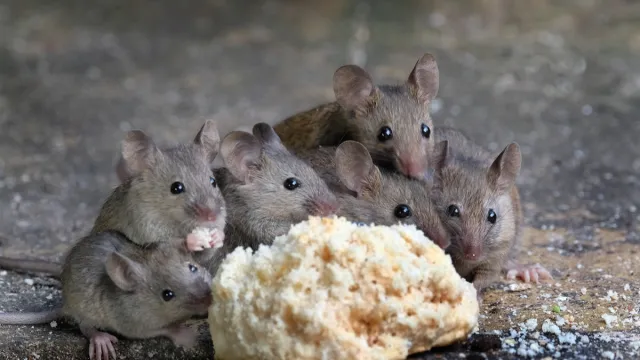
“Follow your nose for the fruity taste that shows,” is a perfect slogan when a classic, sugary cereal is involved—but following your nose may not always lead to such pleasant smells. In fact, strong odors could mean that you have mice in your home. With their small size and knack for squeezing into the tiniest of places, mice can get into your space completely undetected, which is where your nose becomes useful. To see which smells directly indicate the existence of mice in your home—and what they mean—read on to hear from pest experts.
RELATED: 8 Foods That Are Attracting Mice Inside Your Home.
1
Ammonia
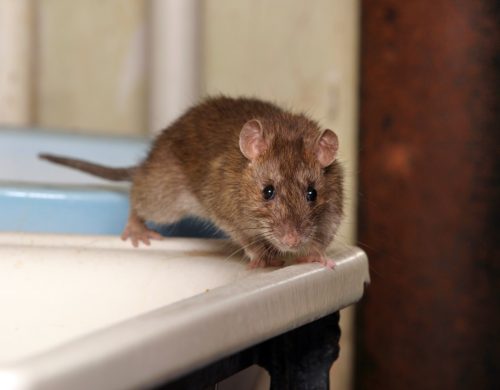
One of the most pungent or recognizable odors that signals a mouse infestation is ammonia. And while this chemical-like scent may be present in many cleaning products, it’s also a clear indication that mice have taken up residence.
“This smell is a result of mouse urine, which mice tend to scatter around as they move through your home,” says Lorne Hanewich, corporate trainer at Clark’s Termite & Pest Control, who adds that as the urine dries, it releases ammonia into the air, creating a strong, acrid odor.
Mice actually use their urine as a territory marker, so the odor is especially noticeable in small enclosed spaces or areas where they’ve nested. And as Ben McAvoy, founder of Insectek Pest Solutions, notes, mice do not have control of their bowels or bladder, which means they will urinate and leave droppings anywhere.
RELATED: 6 Surprising Ways Mice Are Getting Into Your Home.
2
Fish
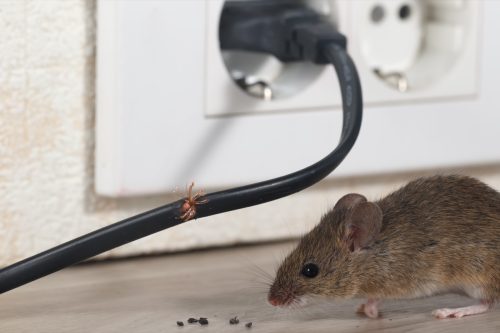
There are two major reasons why your house may get a fishy smell if mice are present.
“Mice use various materials, such as paper, fabric, and insulation for nesting,” says Georgios Likopoulos, pest control expert at Fantastic Services. And Hanewich notes that, over time, these materials “can become soiled with urine and feces,” leading to a fish-like odor.
Ryan Smith, owner of Ant and Garden Organic Pest Control, also points out that a fishy smell may be due to mice gnawing on wires, which could lead to an electrical fire if left unattended. “A weird fishy, burning scent in your home is almost always associated with faulty electrical components like wires,” he explains.
3
Musty
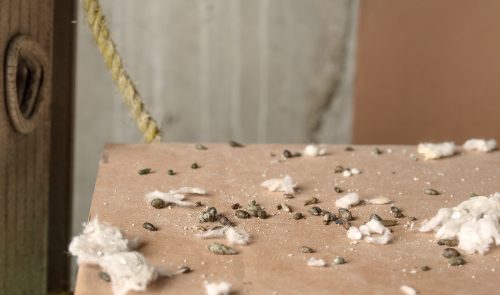
Mice urine and feces that have been sitting untreated may also develop a musty smell.
“Whether fresh or old, when the droppings decompose, they release odorous compounds,” says Likopoulos.
If you suspect this is the issue, McAvoy suggests using a black light to inspect for urine stains along cabinets, baseboards, or pantries.
RELATED: 5 Plants That Keep Mice Out of Your Yard, According to Experts.
4
Decomposition
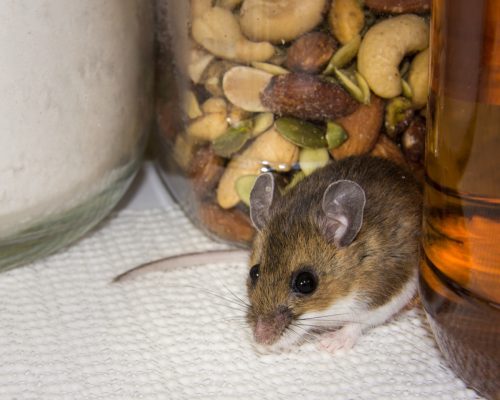
While none of these scents are pleasant, decomposing mice are particularly awful. This general odor will smell rancid or rotten.
“The odor of a dead mouse is a mix of sulfur dioxides, methane and other noxious gases,” according to Terminix. Decomposing mice can also emit a rotten cabbage-like scent.
Hanewich cautions that this smell can also pose health risks: “If you experience this smell, it’s essential to locate and safely dispose of the deceased mouse, as well as take steps to address the infestation.”
5
Sour food
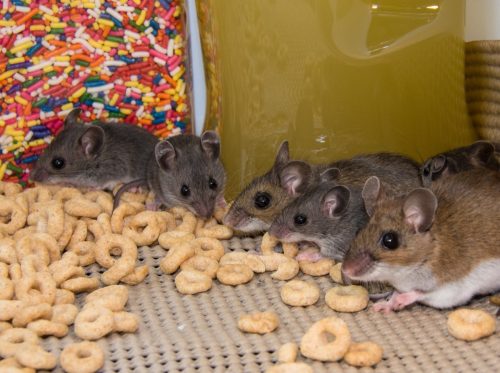
“Mice often contaminate human food with their saliva, urine, and droppings,” says Likopoulos. If this has occurred, you can expect a sour/stale smell to come from the affected food.
It’s important to not only inspect your pantry and food items on a regular basis but also to seal any open packages and store items in airtight containers.
RELATED: 8 Surprising Things in Your Yard That Attract Mice to Your Home.
Other signs of a mice infestation
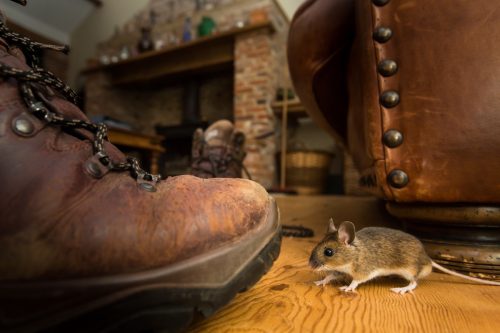
Unless you spot a mouse scurrying around, identifying an infestation based on smell alone can still be somewhat difficult. Therefore, Hanewich suggests keeping an eye out for the following: droppings, gnawed items, scratching noises, and visible signs of a nest. Likopoulos adds that mice typically leave behind greasy smears when they travel along walls and baseboards.
For more pest advice sent straight to your inbox, sign up for our daily newsletter.